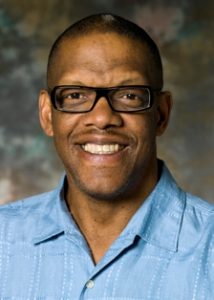Welcome to the George lab site!
Prospective Graduate Students
Accepting new graduate students in the upcoming year (2022-2023)? Possibly
For prospective graduate students: Thanks for expressing an interest in our work. I typically admit one graduate student each year, on average and I presently have four active students.
I am be particularly attracted to applicants demonstrating strong interests and research experiences related to one or more of the following areas: alcohol administration experimentation, sexual psychophysiology, sexual risk-taking, sexual assault, sexual victimization history, child sexual abuse history, affect regulation and dysregulation, and Asian American and African American cultural factors pertinent to HIV/AIDS risks and sexual assault.
Please consider the rest of this website as an up-to-date source of information on my current research interests and activities and those of my graduate students and colleagues. For the near future, my work will be focusing mostly on alcohol consumption and sexual health topics, especially sexual risk-taking and sexual assault.
Our most recently funded renewal project focuses on emotional regulation and sexual victimization history and their effects on intoxicated sexual risk taking. I am also very interested in new lines of investigation, which further incorporate culturally relevant models into my current areas of interest.
Some general advice: Our program is highly ranked and therefore tends to be very competitive. You can learn more about the typical criteria at the department’s website. We look for research experience and the degree of match between prospective students and current faculty. In your applicant essay, you will be able to articulate the degree to which your aspirations and interests match my current pursuits and those of other faculty. Also, most students entering our program demonstrate previous experience publishing and present scientific findings. Furthermore, of course, it is best to apply widely to different graduate schools.
Finally, the following general point is worth emphasizing. Situated in a world-class psychology department, our clinical program’s chief training objective is to produce research scientists who will advance knowledge concerning the etiology, prevention, and treatment of human psychological distress. All of our students are expected, after graduation, to pursue faculty posts or research psychologist positions at universities, university-affiliated hospitals, and research institutes. Therefore, applicants who plan at the outset to seek primarily clinical non-research positions long-term tend to fit less well with faculty training interests and program objectives here.
Research Interests
Currently, I am most active in research focusing on the influence of alcohol on sexual health behavior and related constructs. My work emphasizes the view that both alcohol expectancy theory and alcohol myopia theory are useful frameworks for understanding alcohol-involved sexual behaviors and consequences. Grounded in these theories, my colleagues, students and I conduct surveys and laboratory-based experiments examining the potentially disinhibiting effects of alcohol on sexual perception, sexual arousal, sexual aggression, and HIV/AIDS related sexual risk taking. Typically, these experiments involve assessment of individual differences including alcohol expectancies and drinking motives, administration of beverages, presentation of sexual or sexually aggressive stimuli, and assessment of sexual outcomes, such as arousal, perception, and likelihood of risk-taking. We presently have several manuscripts in preparation or under review, reporting findings from recently completed experiments. In a series of papers, we report that acute alcohol intoxication influences sexual arousal and sexual risk-taking decisions during a hypothetical encounter. In another series of papers, we report that acute intoxication also influences women’s reactions to a hypothetical date rape.
Private: Blog
Contact

Email: bgeorge@uw.edu
Phone: (206) 543-6792
Fax: (206) 685-3157
Hours: by appointment
Address:
University of Washington
Department of Psychology
Box 351525
Seattle, WA 98195
